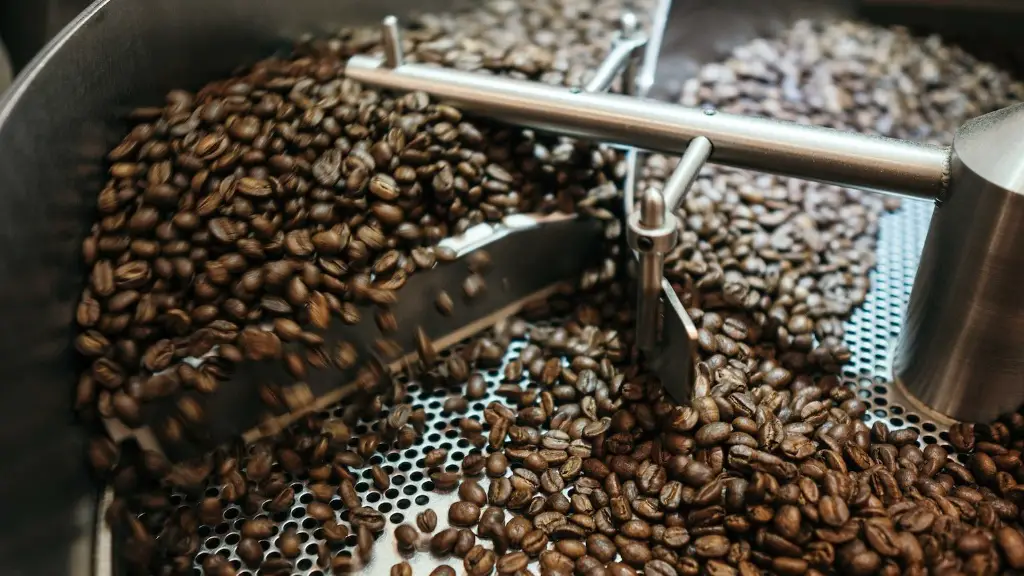Coffee is a popular beverage amongst adults, providing them with an energy boost to help them get through their day. But what about children, specifically 10-year-olds? Is it wise to introduce coffee to these children at such a young age?
Most health experts agree that 10-year-olds should not drink coffee or any caffeinated beverages, regardless of the potential benefits. Lengthy research has revealed that caffeine consumption can have some serious long-term health implications for young children. It’s also important to note that caffeine consumption can be habit-forming, which can lead to addiction.
Recent studies have suggested that 10-year-olds drinking coffee is increasingly prevalent. A 2013 survey of 3,000 children concluded that around 11% of 10-year-olds consume caffeinated beverages on a regular basis. The survey also found that the majority of young drinkers consumed coffee made with regular brewed beans, rather than decaffeinated beans.
The International Coffee Association reported that 35% of 8- to 17-year-olds now drink coffee, up from 25% in 2005. Some experts attribute this increase to the increase in marketing of caffeinated beverages to children. The availability of fast food coffee chains and the rise of specialty coffees have many parents feeling pressures to let their 10-year-olds drink coffee under the occasional pretext of ‘bonding’, even if this pressure is not explicitly stated.
This can be an especially difficult decision for parents, especially for those concerned about their children’s development. Studies have revealed that caffeine can have an adverse effect on growing children. For example, research has suggested that caffeine can lead to changes in heart rate, insomnia, anxiety, changes in mood, increased irritability and difficulty concentrating in some children. Furthermore, these effects may not be immediately noticeable, but can manifest in time.
Caffeine intake is also linked to other health risks in young people. It has been found that caffeine can lead to dehydration, bone weakening and poor dental health. Children may also experience side effects such as headaches, nausea and jitteriness. As such, it is important to consider all of the risks before introducing coffee to a 10-year-old.
In conclusion, while some parents may be tempted to let their 10-year-olds drink coffee, they should remember that it can have serious side effects on young children. Coffee is an acquired taste and It is important to ensure that children are aware of its potential effects. It is also important to note that it can be addictive, so it should be used sparingly and in moderation.
Other Health Risks
One of the biggest concerns around introducing coffee to children is that it can lead to serious health risks. Recent studies have found that caffeinated drinks can be associated with obesity, diabetes and liver diseases. In addition, they have often been linked to cases of high blood pressure and calcium deficiency.
The prevalence of caffeine intake in young people is especially concerning since it has also been linked to changes in appetite and energy. For example, it can lead to an increase in unhealthy snack cravings, which can then lead to unhealthy eating patterns. Furthermore, research has suggested that caffeine can disrupt the body’s natural rhythms, leading to greater fatigue and restlessness. It is therefore important to consider the potential long-term health effects before introducing coffee to 10-year-olds.
It is also important to note that caffeine can have an effect on a child’s ability to concentrate. Studies have found that caffeinated beverages can lead to reduced attention span, trouble with remembering and difficulty in making decisions. This can be especially concerning for children during important developmental stages. For example, during their middle school years, such as during examinations or class work.
Finally, it is important to remember that caffeine can be addictive. As such, it is important to keep an eye on exactly how much coffee a child is consuming. Too much caffeine could lead to unhealthy dependencies, which could then lead to more serious health risks in the future.
Psychological Effects
In addition to the physical risks associated with coffee consumption in adolescents, it is important to also consider the potential psychological effects that coffee can have on children. Research has suggested that coffee consumption in young children can lead to anxiety, depression, and an overall increase in stress levels. It has also been linked to an increase in certain behavioural problems in some young people, such as aggression. These issues are particularly concerning, as they can have a long-lasting and damaging effect on a child’s psychological development.
Furthermore, caffeine consumption in young children can lead to an inappropriate distraction from important activities. For example, if a child spends too much time drinking coffee, then he or she could miss out on important activities such as engaging in sports, or participating in educational activities. This can lead to disruption of essential learning processes, or a lack of physical development.
Given the serious potential effects of coffee consumption in young children, it is important to ensure that they understand the risks. It is also important to set clear limits on how much coffee a child can consume. This can help to ensure that the child has a better understanding of the effects and is less likely to become addicted to caffeine.
Alternative Drinks
Given the potential risks associated with coffee consumption in young children, it is important to consider alternative drinks that can offer a similar energy boost without introducing coffee. One popular alternative is herb tea, which is caffeine-free and usually made from caffeine-free herbal blends. This can offer a mild energy boost, as well as potential health benefits such as providing antioxidants and helping to reduce stress levels.
Another popular, and often suggested option is fresh fruit juices. These can provide an energy boost in addition to a wide range of vitamins and minerals. Orange juice, in particular, is a great option for children, as it is rich in Vitamin C and calcium.
For those looking for a caffeine-free option, sparkling water is a great choice. Not only does it provide hydration, but it also helps to increase alertness. It can also help to reduce stress levels, improve concentration, and boost energy levels.
Finally, it is important to remember that healthy snacks are a great way to provide energy without introducing coffee. For example, dried fruit, nuts and whole grain cereals are all healthy snack options that can provide an energy boost without the health risks associated with coffee.
Parents’ Role
Given the potential risks associated with introducing coffee to 10-year-olds, it is important for parents to take a proactive role in ensuring that their children are aware of the risks. It is important for parents to set clear limits on how much coffee a child can consume, and to ensure that the child is aware of the potential risks associated with its consumption. Setting clear rules and guidelines on coffee consumption can help to ensure that the child is not exposed to these risks.
It is also important for parents to consider any potential psychological effects that coffee can have on their children. Coffee can lead to an increase in behavioural problems, such as aggression. Parents should keep an eye on how their children are responding to their coffee consumption, as it can have potentially serious psychological effects on them.
It is also important for parents to remain educated on the potential dangers of coffee consumption in young children. Knowing the potential risks associated with caffeine consumption can help to ensure that their children are protected from the potential dangers of introducing coffee to 10-year-olds.
Prevention
Given the potential risks associated with introducing coffee to 10-year-olds, it is important to take steps to mitigate the potential long-term effects. Parents should take steps to ensure that their children are aware of the potential risks associated with its consumption. And if a child is drinking coffee, it is important to monitor how much they are consuming and make sure that they are not increasing their intake.
For those who do not want to introduce coffee to their children, there are some alternative options to coffee that can provide an energy boost without the associated health risks. Herb teas, fresh fruit juices, sparkling waters and healthy snacks are all great options. It is important to remember that these drinks can provide the same energy boost without the associated health risks, so they should be encouraged over coffee consumption in young children.
Finally, it is important to remember that when making decisions about coffee consumption in young children, it is essential to ensure that their overall health and wellbeing is taken into account. Coffee consumption can have potentially serious health implications, so it is important to ensure that these risks are addressed before introducing coffee to 10-year-olds.





